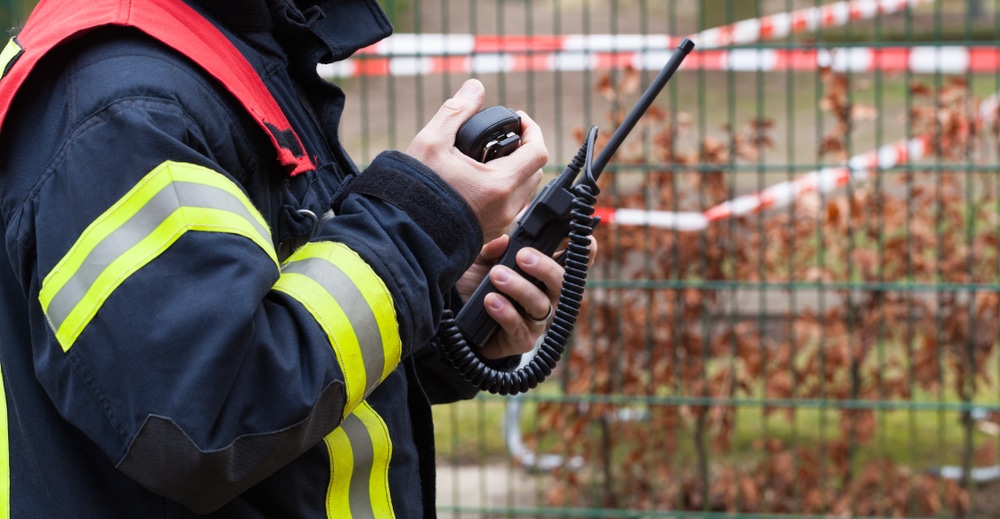
Menu
- Accreditation: This course is accredited by a recognized international body in Health, Safety, and Environmental (HSE) and Business Continuity Management (BCM).
- Certification: Upon successful completion of the course, participants will receive a certificate in Expert Level Emergency Management, recognized globally.
This course provides participants with the knowledge and skills needed to conduct effective incident investigations and perform root cause analyses. The course emphasizes identifying underlying causes of incidents and preventing future occurrences.
- Format: Combination of lectures, case studies, group discussions, and hands-on exercises.
- Materials Provided: Course manual, investigation templates, case studies, and certificate of completion.
- Language: English (or specify if other languages are available)
- Pre-requisites: Basic understanding of workplace safety and incident reporting.
- Safety professionals, managers, supervisors, team leaders, and any personnel involved in incident investigations or safety management.
- Assessment: Participants will be assessed through a combination of quizzes, practical exercises, and a final project or case study.
- Activities: Group discussions, role-playing, root cause analysis exercises, and case study evaluations.
- Understand the principles of incident investigation and root cause analysis.
- Develop skills to identify and document the sequence of events leading to an incident.
- Learn to apply various tools and techniques for root cause analysis.
- Gain proficiency in developing and implementing corrective and preventive actions.
- Enhance reporting and communication skills for incident investigations.
Day 1: Introduction to Incident Investigation
- Module 1: Introduction to Incident Investigation
- Definition and importance of incident investigation.
- Legal and regulatory requirements.
- Overview of investigation processes and methodologies.
- Module 2: Preparing for the Investigation
- Incident notification and initial response.
- Assembling the investigation team.
- Securing the incident scene.
- Module 3: Data Collection and Analysis
- Interviewing techniques for witnesses and involved parties.
- Gathering physical evidence and documentation.
- Timeline development and sequence of events.
Day 2: Root Cause Analysis Techniques
- Module 4: Introduction to Root Cause Analysis (RCA)
- Definitions and types of causes (direct, contributing, root causes).
- Importance of identifying root causes.
- Module 5: RCA Tools and Techniques
- Fishbone (Ishikawa) diagrams.
- 5 Whys technique.
- Fault tree analysis.
- Barrier analysis.
- Module 6: Practical Application of RCA
- Case study exercises on RCA.
- Group discussions on identified root causes.
Day 3: Developing Corrective and Preventive Actions
- Module 7: Developing Corrective Actions
- Identifying and prioritizing corrective actions.
- Developing action plans.
- Implementation strategies.
- Module 8: Preventive Actions and Continuous Improvement
- Establishing preventive measures to avoid recurrence.
- Monitoring and reviewing effectiveness.
- Module 9: Reporting and Follow-up
- Writing investigation reports.
- Communicating findings and recommendations.
- Follow-up procedures to ensure closure.
Final Assessment
- Practical Exercise: Conduct a mock incident investigation and root cause analysis.
- Project Presentation: Present findings and recommended actions.
Conclusion and Certification
- Review of key concepts.
- Q&A session.
- Issuance of certificates
Enroll Now
Ready to enhance your Association of Incident Investigation & Root Cause Analysis Training. Visit our course registration page or contact our course coordinator at [email protected]

Frequently Asked Question (FAQ)
Participants are typically expected to have prior experience or foundational knowledge in Health, Safety, and Environmental (HSE) practices or Business Continuity Management (BCM). This course is designed for professionals in senior or managerial roles, so familiarity with basic emergency management concepts is recommended.
This course is ideal for safety professionals, managers, supervisors, team leaders, and any personnel involved in incident investigations, safety management, or risk assessment within their organization.
Participants will receive a comprehensive course manual, investigation templates, case study materials, and other relevant resources. Upon successful completion, a certificate of completion will also be provided.
While there are no strict pre-requisites, a basic understanding of workplace safety and incident reporting is recommended. The course is designed to be accessible to both beginners and experienced professionals
Participants will be assessed through a combination of quizzes, practical exercises, and a final project or case study presentation. These assessments are designed to reinforce learning and ensure participants can apply the concepts in real-world scenarios.
Get In Touch!
Contact us for a quote or in case of any urgent queries please send us an email on: [email protected]
we will get back to you right away!